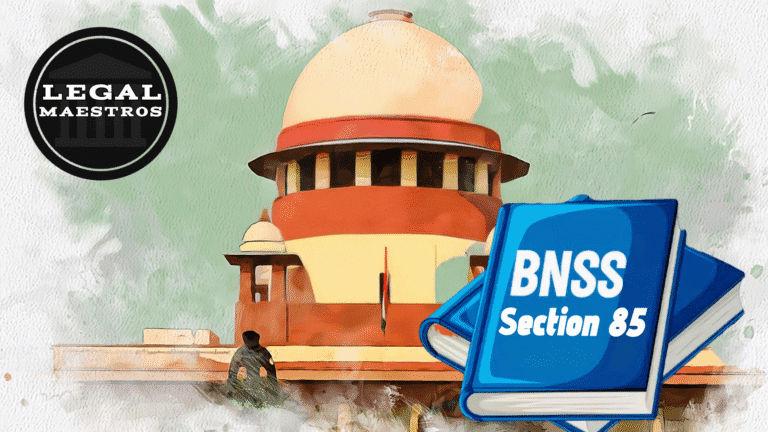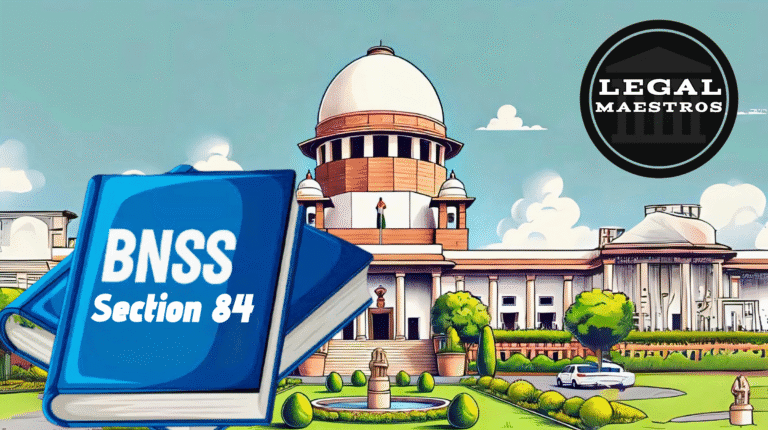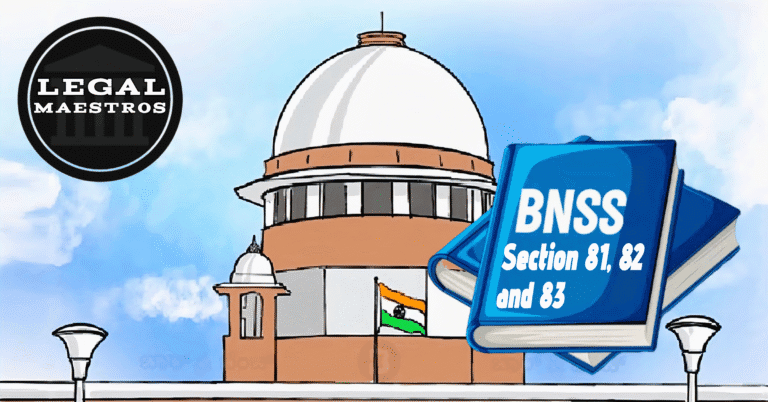
Section 69 – Service of Summons Outside Local Limits
In the event that a person who is to be summoned is not located within the territorial jurisdiction of the court that is issuing the summons, this section contains provisions to address the situation. Whenever this occurs, the law stipulates a certain course of action.
The court is required to send two copies of the summons to a Magistrate who has jurisdiction over the area where the individual resides or is currently staying in accordance with Section 69. This is the case when the court needs to serve a summons in an area that is outside of its local jurisdiction. Since this other Magistrate is responsible for ensuring that the summons is issued in the appropriate manner, the duty lies on him.
It is illustrated
When a Magistrate Court in Delhi wants to summon a person who lives in Pune, it will send two copies of the summons to a Magistrate in Pune on behalf of the Delhi Magistrate Court. It is then the responsibility of the Pune Magistrate to make arrangements for the person to receive the summons.
For any queries or to publish an article or post or advertisement on our platform, do call at +91 6377460764 or email us at contact@legalmaestros.com.
With the use of this provision, the court will not directly overreach into regions that are located outside of its geographical boundaries; rather, it will work in conjunction with a court that is authorized to exercise jurisdiction in the area in question. Administrative collaboration and judicial discipline are both maintained as a result of this amongst courts located in separate jurisdictions.
Section 70 – Proof of Service in Cases of Outside Jurisdiction or Absent Officers
The proof of service is established in accordance with the provisions of Section 70 of the Bharatiya Nagarik Suraksha Sanhita, 2023. This provision is applicable in situations where a summons is served outside of the jurisdiction of the court that issued the summons or when the officer who served the summons is absent from the scheduled hearing.
As evidence, the Affidavit and the Duplicate Summons are both required under Section 1.
The court may rely on an affidavit in situations when the officer who served the summons is not present in court to testify on the service, or when the summons was served outside of the jurisdiction in which the court has jurisdiction. A statement confirming the summons was properly served should be included in this affidavit, which must be submitted in front of a Magistrate. In addition, the court requires a duplicate copy of the summons, which must be endorsed in accordance with the procedure outlined in Section 64 or 66, and signed by the individual to whom the summons was served.
For any queries or to publish an article or post or advertisement on our platform, do call at +91 6377460764 or email us at contact@legalmaestros.com.
The affidavit and the duplicate summons will be considered to constitute evidence that can be presented in court. In the absence of clear evidence to the contrary, the court will acknowledge the service as legitimate.
It is illustrated
Consider the following scenario: a local police officer in Hyderabad serves a summons on a person who is unable to attend the court hearing in Delhi. The duplicate summons that has been endorsed, combined with an affidavit that has been signed in front of a Hyderabad Magistrate for the purpose of confirming the service, will be sufficient as legal proof.
Documents must be returned and an affidavit must be attached, as stated in subsection (2).
This component makes it possible to physically attach the affidavit to the duplicate copy of the summons. After that, both documents are sent back to the court that issued them, while simultaneously ensuring that the appropriate documentation is kept for the court’s record.
For any queries or to publish an article or post or advertisement on our platform, do call at +91 6377460764 or email us at contact@legalmaestros.com.
Service through Electronic Communication, as outlined under subdivision (3)
In the Bharatiya Nagarik Suraksha Sanhita, 2023, the recognition of electronic means for serving summonses is a significant feature that serves as an essential addition. In accordance with Sections 64 to 71, it is stated that any and all summonses that are served using electronic communication (such as email or messaging applications) will be regarded as constitutional. As proof that the electronic summons was served, a copy of the summons must be attested and kept for future reference.
It is illustrated
In the event that a person is served with a summons through a verified email address and a read receipt is available, this can be used in court as proof of service in conjunction with a printout that has been confirmed by an official.
This provision is forward-thinking and appropriate for the digital era for the purpose of ensuring that summonses are served in a more expedient and effective manner while yet preserving their legal validity.
For any queries or to publish an article or post or advertisement on our platform, do call at +91 6377460764 or email us at contact@legalmaestros.com.
Section 71 – Service of Summons on Witness by Post or Electronic Communication
In accordance with Section 71, a court is permitted to personally deliver a summons to a witness by use both conventional and contemporary techniques. Due to this feature, the process is accelerated and becomes less reliant on the delivery of goods manually.
Concurrent Service by Electronics or the Postal Service, as Specified in Section 1
It gives the courts the ability to serve a summons to a witness not only through the procedures that are typically used, but also simultaneously through registered mail or electronic means such as email. It is required that the summons be sent to the location where the witness most frequently resides, where they are employed, or where they conduct business.
It is illustrated
A court in Bengaluru has the ability to personally issue a summons to a witness who resides in Mumbai using either registered mail or email. The court has the ability to ensure that the witness receives it in a timely manner and through a variety of channels.
For any queries or to publish an article or post or advertisement on our platform, do call at +91 6377460764 or email us at contact@legalmaestros.com.
Validity in accordance with an acknowledgment or proof of delivery, as stated in subsection (2)
In the second half of this section, the elements that must be met before the court can presume that the summons was served are outlined. These include the following:
An acknowledgment receipt that appears to be signed by the witness appears to be there.
An endorsement from a postal worker saying that the witness declined delivery of the merchandise.
For any queries or to publish an article or post or advertisement on our platform, do call at +91 6377460764 or email us at contact@legalmaestros.com.
Such evidence as delivery reports or email confirmations can serve as evidence of the delivery of an electronic summons in accordance with Section 70(3).
This evidence is sufficient for the court to conclude that the service was genuine, even if the witness later asserts that they did not receive the service.
It is illustrated
This means that the court will consider the summons to have been properly served if it is returned to the court via registered mail with a letter stating that the witness did not accept it, and if the email that was delivered shows a delivery receipt.
For any queries or to publish an article or post or advertisement on our platform, do call at +91 6377460764 or email us at contact@legalmaestros.com.






![Research Assistantship @ Sahibnoor Singh Sindhu, [Remote; Stipend of Rs. 7.5k; Dec 2025 & Jan 2026]: Apply by Nov 14, 2025!](https://legalmaestros.com/wp-content/uploads/2025/11/Gemini_Generated_Image_s0k4u6s0k4u6s0k4-768x707.png)
![Karanjawala & Co Hiring Freshers for Legal Counsel [Immediate Joining; Full Time Position in Delhi]: Apply Now!](https://legalmaestros.com/wp-content/uploads/2025/11/Gemini_Generated_Image_52f8mg52f8mg52f8-768x711.png)